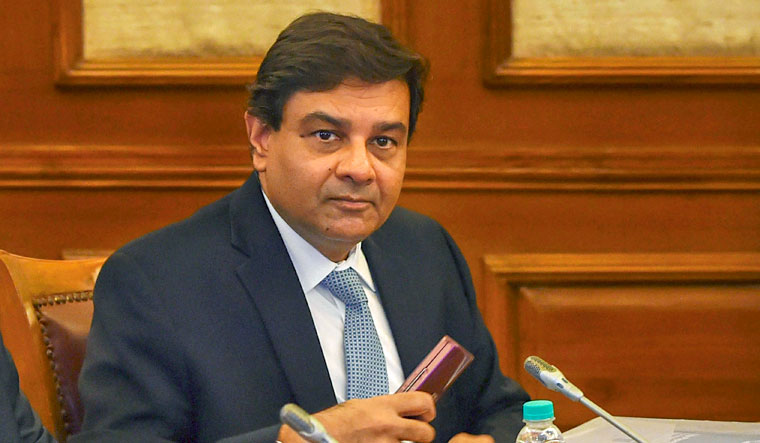The tensions between the Centre and the Reserve Bank of India has apparently reached a new level. Some sections of the media reported that Governor Urjit Patel is likely to consider a resignation from the post following a breakdown in relations with the Narendra Modi-led NDA government.
Television channels CNBC-TV18 and ET Now cited sources as saying that Patel could quit, sparking a sell-off in the rupee and bonds. According to the ET report, the government has invoked “never-before-used powers” under the RBI Act, allowing it to issue directions to the central bank governor on matters of public interest.
The report said the government had sent letters to the RBI governor in recent weeks, exercising powers under Section 7 of the RBI Act.
Section 7, a statute that has not been used in independent India according to ET, says that “the Central government may from time to time give such directions to the Bank as it may, after consultation with the Governor of the Bank, consider necessary in the public interest”.
read more
- Normal monsoon predicted for 2024. Is it enough to bring down inflation?
- Climate change poses challenges for monetary policy, says RBI report
- RBI governor calls for for greater participation of banks in rupee derivatives in India, abroad
- With inflation likely to cool and growth strong, shallow rate cuts likely in the second half of FY25
The letters sent to the central bank had addressed issues ranging from liquidity for non-bank finance companies, capital requirements for weak banks and lending to small- and medium-sized companies.
Indian stocks and bonds fell and the rupee weakened earlier in the day following the media reports.
However, in a statement issued hours later through the finance ministry, the government said the RBI’s independence was “an essential and accepted governance requirement”.
The government added that it would continue to carry out extensive consultations with the central bank to give its assessments on issues and suggest possible solutions.
The differences between the RBI and the Centre is nothing new and the rifts used to be over issues such interest rates or debt management. However, this time around, the tensions were sparked off by the government's intervention through the board.
In September this year, the term of one of the board members, Nachiket Mor, was abruptly brought to an end by the government, which is said to be unprecedented in RBI’s history. Mor was extremely vocal against issues like regulatory forbearance and higher surplus transfer, which the government was aggressively pushing. Following the rejig in the board, some members asked for more dividends, according to media reports.
Sources in the central bank, cited by media, claim that the induction of right-wing thinkers like S. Gurumurthy to the board only added to the tension. Gurumurthy recently expressed discomfort over applying Basel norms to Indian banks.
Tensions between the RBI and the government was brought to the public domain after RBI Deputy Governor Viral Acharya said on Friday that undermining central bank independence could be “potentially catastrophic”, indicating the authority was pushing back against government pressure to relax its policies and reduce its powers ahead of the general election due by May.
Investors are worried that a prolonged row between the government and the RBI could impact decision making at a time when India’s financial markets have been hit hard by a series of debt defaults by one of the largest infrastructure funding companies. That has led to a liquidity crunch in the entire non-banking finance sector.
The markets clawed back some early losses after the government issued the statement, but still appeared tentative.
Benchmark stock indexes BSE and NSE rose around 1 per cent, while the rupee was at 73.85 to the dollar, up from a low of 74.14 but still down on the day.
The 10-year benchmark bond yield was at 7.87 per cent from its previous close of 7.83 per cent.


